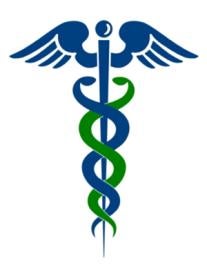The New York State Legislature has passed a myriad of laws during the 2017-18 session addressing health care issues ranging from telemedicine to mental health. Below is a summary of the health care laws passed in 2017 to date.
Telehealth
S3293, passed September 12, 2017, expands the definition of “originating site”—the site at which a patient is located at the time health care services are delivered by means of telehealth—to include public, private and charter elementary and secondary schools, school-age child care programs and child day care centers. This law allows children to access needed care from school, increases the facilities’ likelihood of receiving reimbursement and supports existing internet-based patient care telemedicine models.
S4285A , passed August 21, 2017, amends the definition of “originating site” to include any type of adult care facility licensed under Article 7, Title 2 of the social services law. This law will increase access to care for seniors who cannot easily travel to a doctor’s office, facilitate aging in place and support existing telemedicine models.
Medical Records
S6078, passed September 13, 2017, prohibits providers from charging for medical records or copies of medical records that are requested for an application, claim or appeal for any government benefit or program. Previously, fee waivers were available but difficult to obtain in practice. Providers who maintain electronic medical records must provide either electronic or paper copies as requested by the government program or the patient.
S2933A, passed August 21, 2017, adds adult siblings to the list of “qualified persons” who can access the clinical records of an adult patient with developmental disabilities. Adult siblings often play an important role in the care of a developmentally disabled family member.
Licensure/Scope of Practice
S5936A, passed August 21, 2017, creates a limited license category for speech-language pathologists who are completing an experience requirement for their professional license and are engaging in clinical or academic practice under the supervision of a licensed speech-language pathologist. The limited license category allows licensees to participate in the Medicare program.
S6005A, passed August 21, 2017, adds individuals who are employed by a contractor of a school district, county vocational education and extension board, charter school, or non-public elementary or secondary school to the list of individuals who can administer epinephrine auto-injectors in the event of an emergency. The law was meant to allow bus drivers, who often are employed by private companies, to administer life-saving epinephrine injections to school children.
S6023A, passed August 21, 2017, extends the Long Term Care Ombudsman Program’s role in advocating for seniors in long-term care facilities and managed care plans through December 31, 2019.
S5409A, passed July 25, 2017, allows the county board of supervisors to utilize a professional partnership, a professional service corporation, a professional service limited liability company or a registered limited liability company to provide health services to inmates of the county jails, provided that one physician is designated to act as Chief Medical Officer. Previously, the county board had to appoint an individual physician as the physician for each jail.
S981, passed February 1, 2017, requires credentialed alcoholism and substance abuse counselors that provide treatment or counseling services at a substance abuse facility to complete an approved medication assisted treatment course.
Mental Illness
S6154, passed August 21, 2017, amends the definition of “in need of involuntary care and treatment” as it applies to a resident in a school, to clarify that an individual must pose a real and present risk of substantial physical harm to himself or herself or others, in conformity with due process requirements. Although the law did not previously require this explicitly, the relevant agencies interpreted the statute to require a showing of substantial physical danger to self or others. This law also clarifies that the Commissioner of the Office for People with Developmental Disabilities will make involuntary care and treatment application determinations.
S5750, passed August 21, 2017, requires the Department of Health’s health care and wellness education and outreach program to include information about pediatric acute-onset neuropsychiatric syndrome and an advisory council that includes representatives, families and health care providers of people with pediatric acute-onset neuropsychiatric syndrome. This law will increase education and early detection of the illness.
S6726, passed June 20, 2017, extends Kendra’s Law until June 30, 2022. Kendra’s Law established a process for obtaining court-ordered assisted outpatient treatment for individuals with mental illness and a history of hospitalizations.
Hospice
S6347, passed August 31, 2017, clarifies that hospice programs that provide hospice care in a patient’s home shall be considered a home care services entity for the purposes of compliance with the home care services worker registry. The law allows certain hospice programs to temporarily approve a prospective employee under direct observation and evaluation while the results of the criminal history information check and the determination are pending.
S6364, passed August 21, 2017, increases the number of hospice in-patient beds that can be dually certified from 25 to 50 percent of the hospice residence’s capacity. The increase in dually certified beds is expected to benefit hospice patients, hospital inpatients who need to be transferred to a hospice residence and hospice patients residing in the community, and will also help decrease unnecessary re-hospitalizations.
Managed Care
S6454, passed June 29, 2017, extends certain consumer and provider protections relative to managed care contracts until June 1, 2019. This law requires that the parties continue to abide by the terms of a contract that is not renewed or is terminated by one party for two months after termination or nonrenewal, and notice must be given to enrollees within 15 days. These protections do not apply where both parties agree to the termination or non-renewal and notice is provided at least 30 days in advance.
Certificate of Public Advantage
S5342, passed June 29, 2017, extends the authority of the Department of Health to issue certificates of public advantage from December 31, 2016, to December 31, 2020. Certificates of public advantage facilitate collaborative arrangements, including mergers, acquisitions and other integrative arrangements, among health care providers who might otherwise be competitors, and provide protection from state and federal antitrust laws.
Medical Indemnity Fund
S986, passed February 1, 2017, precludes the Department of Health from issuing Medical Indemnity Fund regulations that would require prior authorization for payments to recipients that incidentally benefit other members of the recipient’s household, although primary benefit to the patient may be considered. The law also repeals certain provisions relating to requests for denials of claims and denials of requests for prior authorizations and consumer and stakeholder workgroups, and requires the superintendent of financial services to issue a report to the governor and the legislature regarding the financial condition of the fund.
Elder Abuse
S6676, passed September 13, 2017, requires the Director of the Office for the Aging, in conjunction with the Department of Health and the Office of Children and Family Services, to develop guidelines to help providers identify elder abuse, self-neglect and maltreatment. The guidelines will include common signs and symptoms, screening tools and questions that can be used during medical visits, training materials, reporting information and available resources. The guidelines and materials will be available from the Office of the Aging, Department of Health and the Office of Children and Family Services upon request, as well as on their websites.
Dormitory Authority
S5294, passed September 12, 2017, amends the definition of “dormitory” and “educational institution” as it applies to not-for-profit members of NYSARC, Inc., the Alliance of Long Island Agencies, Inc., and InterAgency Council of Mental Retardation and Developmental Disabilities Agencies, Inc. to allow for Dormitory Authority (DASNY) financing and other services to certain clinical facilities. DASNY financing is expected to help these entities develop clinical facilities to serve their populations and to promote the Delivery System Reform Incentive Payment (DSRIP) program.
Reporting Requirements
S5671A, passed June 14, 2017, targets several reporting requirements in the Public Health Law, the Social Services Law and the Unconsolidated Law that have become unnecessary, obsolete or burdensome. The law repeals and removes various reporting requirements and amends others to require reports every three years rather than annually.
The following reports and reporting requirements will be affected:
-
The 21st century workgroup for disease elimination and reporting report
-
Department of Health quarterly reports on the transfers or interchanges made by the commissioner related to state hospitals
-
Department of Health report on the progress of the immunization program
-
Evaluation and reports of the rape crisis intervention and prevention programs
-
State health research council annual report
-
Pesticide control board annual report
-
Student immunization reporting
-
Evaluation of the cancer registry reporting
-
Skin cancer reporting
-
Dioxin exposure policy reporting
-
Diethylstilbestrol program report
-
Child food choking prevention report
-
Child health plus program implementation report
-
Effectiveness of the adolescent pregnancy prevention program report
-
Bureau of chronic disease and geriatrics plans and activities report
-
New York state kidney disease institute report on findings, progress and activities
-
Public Health and Health Planning Council report on uniform reports and accounting systems for hospital costs
-
Report on rural health networks
-
Report on the operation of multipayor patient centered medical home program
-
Several patient safety center reports
-
Report on the effectiveness of the Antonio G. Olivieri controlled substances therapeutic research program
-
Report on the exclusion of hospital-based certified home health agencies and the allocation to publicly sponsored certified home health agencies
-
Toxic substances report
-
Report on the progress of implementation of automated systems for Medicaid enrollment
-
Report on the implementation of AIDS home care programs and status reports from the AIDS Institute
-
Annual report on services currently provided to children and adolescents who lose their primary caregivers to HIV/AIDS
-
Reporting regarding the inactive Adult Care Facilities and Assisted Living Residences Task Force
-
Reporting requirements regarding the inactive child health and wellness programs




 i
i


